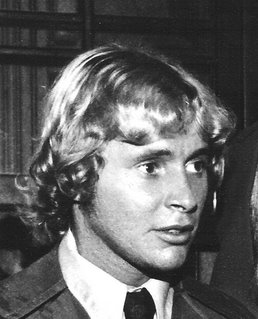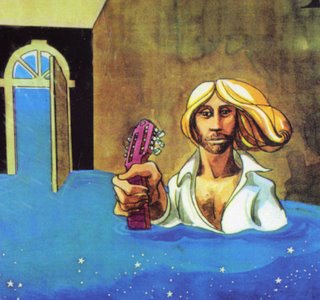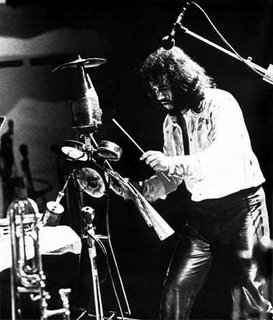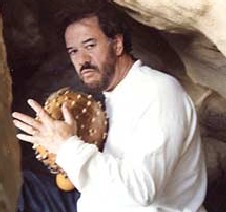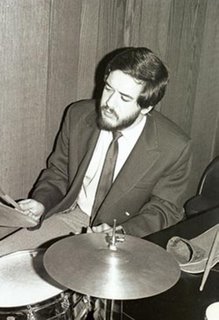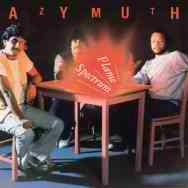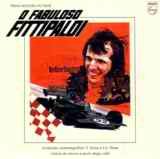interview with Flora Purim

The music of Flora Plurim has been at the forefront of Latin and American jazz music for over 25 years. She has earned two Grammy nominations for Best Female Jazz Performance and Downbeat Magazine Best Female Singer accolade on four occasions.
Flora’s musical partners have included Gil Evans, Stan Getz, Chick Corea, Dizzy Gillespie and she has collaborated with Airto Moreira on over 30 albums since 1967 when they arrived in New York with him in from their native Rio.


Her musical taste and genius developed thanks to her father, a Russian émigré, who played violin and her mother who was a talented pianist in her own right. Before leaving Brazil to escape the repressive regime of the time, she, like many Brazilian musicians, had mastered playing piano and guitar whilst developing her impressive vocal talent.
After arriving in New York Flora and Airto became central to the period of musical expression and creativity which produced the first commercially successful Electric Jazz groups of the 70s.

Pianist Duke Pearson was the first American musician to invite Flora to sing alongside him on stage and on record. She then toured with Gil Evans, and she worked with Chick Corea and Stan Getz as part of the New Jazz movement that also contained the influence of the great Cannonball Adderley.

In the early 70’s, two classic albums - "Return to Forever" and "Light as a Feather" introduced the fusion jazz sound!
Her first solo album in the US, Butterfly Dreams was released in 1973, which catapulted her straight into the Top Five Jazz Singers on the Downbeat Magazine Fame Jazz Poll.
During her career Flora has given her contribution to some of the greatest recordings of the seventies - Carlos Santana, Hermeto Pascoal, Gil Evans, Chick Corea and Mickey Hart . In the mid-Eighties, Flora and Airto resumed their musical partnership to record two albums for Concord for which she received a Grammy nominations and she continues to record and perform right up to the present day.
Jazzmotel is proud to present a LADY OF JAZZ.
This is the interview with Flora Purim.

One question I always ask the artist interviewed for Jazzmotel is: What are your musical origins? How did your taste develop?
My music origins are Brazilian and classical.
In 1967 you left Brazil for New York. Up until then with whom had you collaborated and what had been your experiences in Rio. Tell me about the musical atmosphere that was around Brazil at that time.
I became a professional singer in 1965. I worked extensively with Hermeto Pascoal, Sambalanço Trio, Sambraza Trio and recorded my first LP, entitled Flora é MPM, for RCA Victor. I also sang with the big bands of Maestro Cipó and Pocho as well as with the small ensemble called 7 de Ouros. I worked at the night club Stardust and at the temple of the Bossa Nova in
São Paulo, the João Sebastião Bar. The musical atmosphere was of the high quality of musicians and musicianship that had only one interest in mind: play, play, play! Brazil was beautiful and very inspiring in many different ways.

Musically speaking, what differences did you notice between New York and Brazil?
When I arrived in New York, it was December of 1967, and all I wanted was to listen to my favorite singers and musicians in jazz, which I did in a couple nights when I found out that in the Harlem was a jazz hang called Club Baron. Every active musician in town would converge to that club after their regular gigs, with the purpose of jamming. In other words the difference was only one. I could improvise in any style, and that was acceptable and welcome.
That time was indeed energetic and electric.
How was your first musical contact with New York jazz and in what way did you become part of the jazz musicians scene?
Then I joined Chick Corea and the original Return To Forever, along with bass player Stanley Clark, saxophonist and flute player Joe Farrell, Airto Moreira on drums, while I played percussion and sang unison lines on the melodies with the saxophones and flutes of Joe Farrell. When the group was not touring I would be rehearsing and singing with one of my mentors Gil Evans and his Big Band.

The first time I heard your voice was when I heard "Stormy" from the album "It Could Only Happen With You" of Duke Pearson. And I loved it.
Tell me something about your experience with the music of Pearson and Blue Note.
Duke Pearson fell in love with Brazilian music at first contact. And besides being an A&R and executive director for Blue Note, Duke had his Big Band and invited me to sing in two of his vinyl (LP) records: “How Insensitive” and “It Could Only Happen With You”. It turned out very nicely. He loved it and so did I.

Gil Evans has influenced your music and your artistic development in many ways. Of all his work, what has left its mark on you the most?
One his collaborations with Miles Davies entitled Miles Ahead: Miles Davis +19.

How can we define that New Jazz movement introduced by you, Airto, Chick Corea and Stanley Clarke among others? That sort of Electric Jazz with tropical undertones from the beginning of the 70's that they call Fusion.
I feel that fusion is not a bad way to describe it, except that we have to clarify that there are many types of fusion. That was a Jazz/Brazilian fusion; maybe we should call it illusion.
George Duke, Deodato, Hermeto Pascoal, Duke Pearson, Cannonball Adderley, are a few of the musicians with who you have worked. How much have they influenced your way of making music?

George Duke and Hermeto Pascoal as well as Airto and Gil Evans were the ones who helped me to decide the way I chose to sing by encouraging me to go ahead with my experimentations and validating me by coming to recordings and being part of my process of evolution.
What do you think of contemporary music that fuses 70's jazz with electronic
music?

I think is fine to try it but not everybody knows what it takes to successfully achieve a good result.
Do you think it has the same significance as the electric jazz that you used
to play?
No, I don’t think so.
Flora Purim
Paris - France, June 10th 2008.
Labels: airto moreira, alessio berto, azymuth, bossanova, brazil, flora purim, Jazz Flute, marcos valle, nueva york



.jpg)














